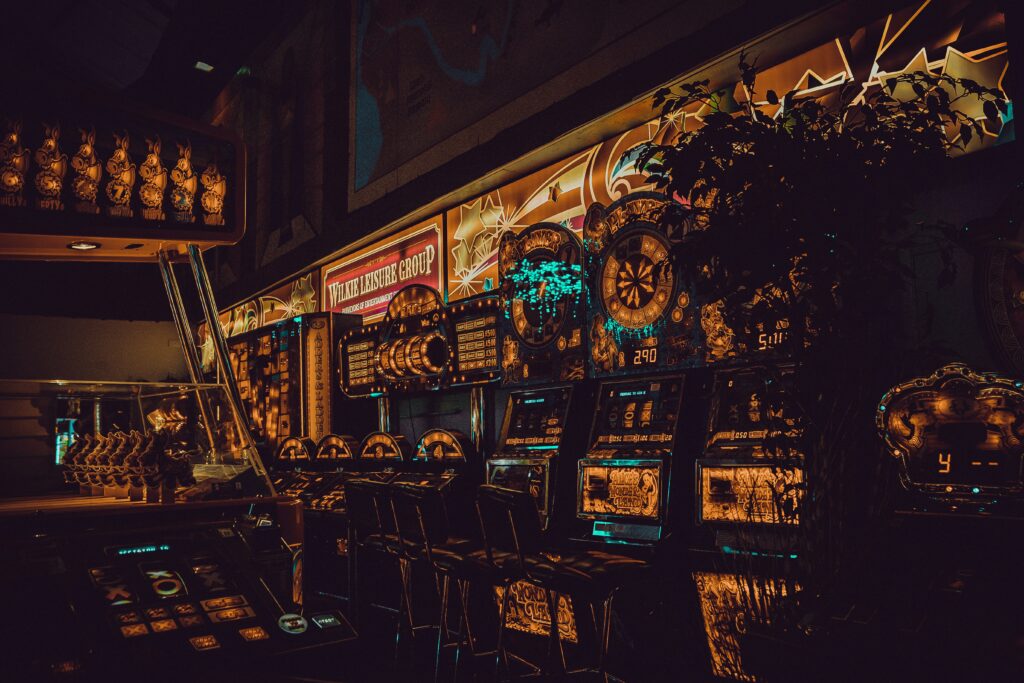Gambling games have long captured the fascination of people around the planet, becoming an essential part of both fun and society. From the shimmering lights of the Vegas Strip to the engaging experience of internet gambling, these activities evoke enthusiasm, uncertainty, and sometimes even a sense of remembrance. They are beyond simply hobbies; they have woven themselves into the tapestry of our lives, influencing various aspects from film and songs to fashion and literature.
The charm of casino games goes beyond the betting aspect, tapping into broader themes of fortune, possibility, and human behavior. As players convene around a gaming table or spin the wheel of fortune, they engage in an age-old ritual that resonates with our collective desire for adventure and unpredictability. This obsession has led to the emergence of numerous references in films, songs, and gaming, showcasing how intensely entrenched these activities are in pop culture. Whether it is the pressure of a legendary caper or the lively nightlife portrayed in videos, casino games have created a substantial place that reflects our connection with reward.
Social Impact of Casino Activities
Casino games have played a pivotal role in social aspects throughout the ages. Originating from ancient civilizations, games of chance were often connected to rituals or events. For example, early forms of gambling can be traced back to ancient Chinese and the Roman Empire, where dice games and wagering on outcomes were popular pastimes. These games not only served as entertainment but also as methods of social interaction, facilitating relationships among individuals within societies.
As cultures evolved, so did the complexity and organization of casino games. The creation of formal casinos in the 17th century, particularly in the Italian region, marked a notable shift in how games were viewed and organized. With specific spaces for gaming, the casino became a community center where patrons from different backgrounds gathered. This change contributed to the legitimization of the industry, transforming it from a mere pastime into an established industry that shaped economy and regulations.
The impact of gambling activities on popular culture cannot be overlooked. As they were brought into the limelight in books and movies, games such as poker and blackjack became icons of risk, luck, and tactics. Iconic characters and narratives have emerged around these games, reflecting societal attitudes towards luck, prosperity, and vice. This fascination with gambling activities has infiltrated various forms of media, solidifying their status in the public imagination and linking them to wider cultural narratives throughout history.
Representation of Gambling Games in Media
Casino activities have long been a popular theme in different types of entertainment, reflecting both the excitement and complexities of gambling culture. Movies such as Ocean’s Eleven and Casino Royal portray individuals who navigate intense situations, showcasing not only the attractiveness of the casino atmosphere but also the methods and decisions that come with playing popular games like poker and blackjack. These movies often dramatize the thrill of winning and the potential results of losing, encapsulating the dangers involved in gambling.
Television shows have also explored the realm of casino games, often integrating them into the narrative as a context for character development and tension. Series like Vegas depict the experiences of casino workers and patrons, highlighting the vibrant, often tumultuous energy of the casino floor. Docuseries featuring high-stakes gambling competitions further emphasize the fascination of casino games, drawing viewers into the excitement and planning involved in each game. Through these representations, media not only engages but also stimulates conversations about luck, skill, and the essence of chance.
Digital games have increasingly included gambling activities into their design, allowing players to recreate the thrill of betting without monetary loss. Games within the domain of digital gaming often include virtual slots, online poker, and other casino favorites, creating an engaging environment that mirrors real-life gameplay. These digital representations make casino games accessible to a broad demographic, appealing to both gamblers and those who enjoy the rush of simulation. As a outcome, the representation of casino games in media continues to shape societal views and importance, highlighting their place in entertainment and culture.
Impact of Casino Games on Communities
Gambling activities have a meaningful effect on communities, influencing various aspects of societal norms and social behavior. They often serve as a platform for community engagement, where people gather to enjoy a common experience. https://vnew88.net/ Game nights with friends or visits to casinos become group events that build connections and create shared moments. This communal aspect enhances the entertainment value of casino games, making them a favored choice for celebrations and leisure activities.
Moreover, casino games have been depicted in numerous films, television shows, and written works, influencing views and attitudes towards gambling and gaming. Icons like James Bond competing in baccarat or the high-stakes poker scenes in films have embedded these games in the collective imagination. This depiction often idealizes the lifestyle associated with casino activities, drawing in new players and influencing trends in both style and conduct. These representations can spark curiosity and lead to a deeper exploration of the intricacies of gambling.
Nonetheless, there are also adverse implications linked to the popularity of gambling activities. The temptation of quick monetary gain can lead to problem gambling and financial troubles for some individuals. Society must contend with these issues, promoting responsible gaming and awareness of the dangers involved. Finding a balance between the fun aspect of casino games with the potential for harm is crucial to ensure that they remain a beneficial aspect of our cultural landscape.
